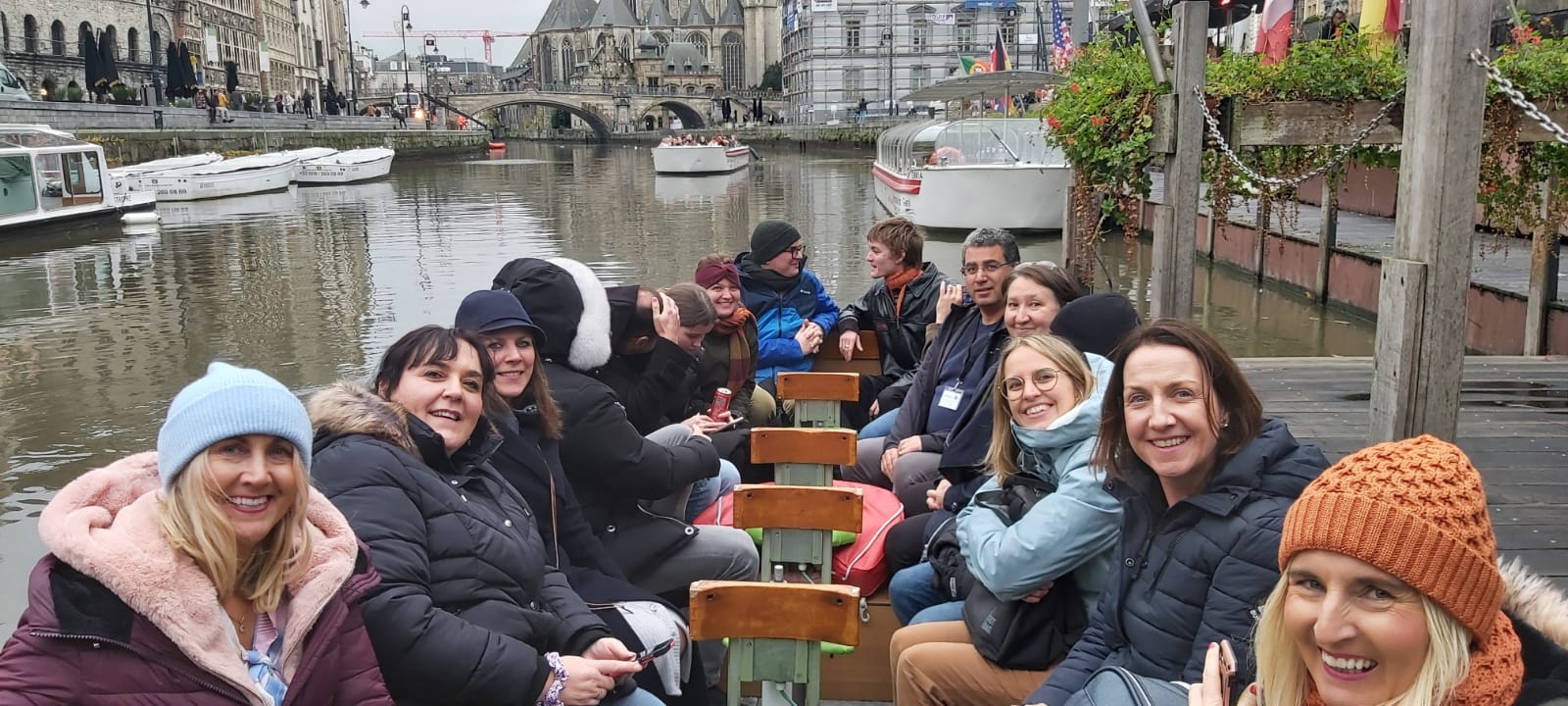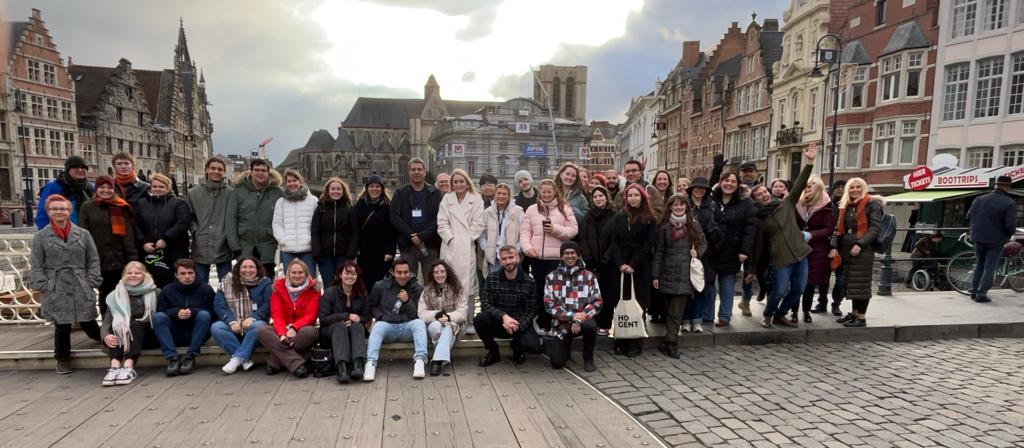'Start locally, debate globally' is a Blended Intensive Programme (BIP) in which nursing students from HOGENT explored and debated a variety of topics with students from other European colleges and Erasmus students. The initiative brought together 6 European higher education institutions, 12 nationalities and 13 study disciplines and took place from 20 to 24 November. Ellen Goossens, lecturer at HOGENT coordinator of this BIP, calls the project "a unique experience."
'Start locally, debate globally' is an optional course within nursing. There were also nursing students from the Irish and German participating colleges but the other students were situated in totally different fields: Polish students from the English language course, Portuguese engineering students, Finnish and Erasmus students from a whole host of other fields of study at HOGENT. The field of participants, a total of 41 students, is so varied not only in number of nationalities but also in background.
The choice to involve programmes that are quite different in terms of content was deliberate: one of the objectives was to take the students out of their comfort zone, through language (the language of instruction was English) but also by introducing them to subject areas and disciplines that were totally unfamiliar to them.
The face-to-face project week at HOGENT was preceded by several online sessions. These were to give the (internationally composed) student groups the opportunity to get to know each other, plan and prepare things.
Broad theme
The theme of the project week was 'dominance', a topic that allowed a very broad interpretation, and that was exactly the intention, Ellen Goossens clarifies: "It could be about racism, inclusion, but just as well about artificial intelligence or political influence. Such a broad concept allows enough flexibility."
Students not only interacted amongst each other during the project week, but also hit the road. Among other things, they travelled to Brussels for a day, where they made a guided visit to the European Parliament.
"That was a very fascinating visit," says Ellen Goossens. "The students were clearly impressed, but the guide was also very pleased with his unusual audience: rarely did he accompany groups with so many different nationalities, he told us." The students also headed to the Flemish Parliament, where they debated among themselves, which Ellen said had a "high quality and professional" feel.

Getting acquainted with the delightful Ghent city centre via its canals was not to be missed in the BIP programme.
No barriers
The experience among both the students and the supervising lecturers has been very positive. "One of the elements the students particularly appreciated was the high degree of interactivity. We hardly incorporated any classical teaching moments; the whole programme was mainly made up of team assignments. The fact that both the theme and the audience were very varied was also perceived as a huge added value. It inevitably resulted in the assignments and group work being repetitive learning experiences out of which new insights grew. It was also nice to note that there were very few barriers: the students did not stay in their own familiar circle, but very quickly formed a close-knit, colourful group where everyone talked to everyone else."
Ellen is already looking forward to a second edition next year, which will be coordinated by a different partner.
